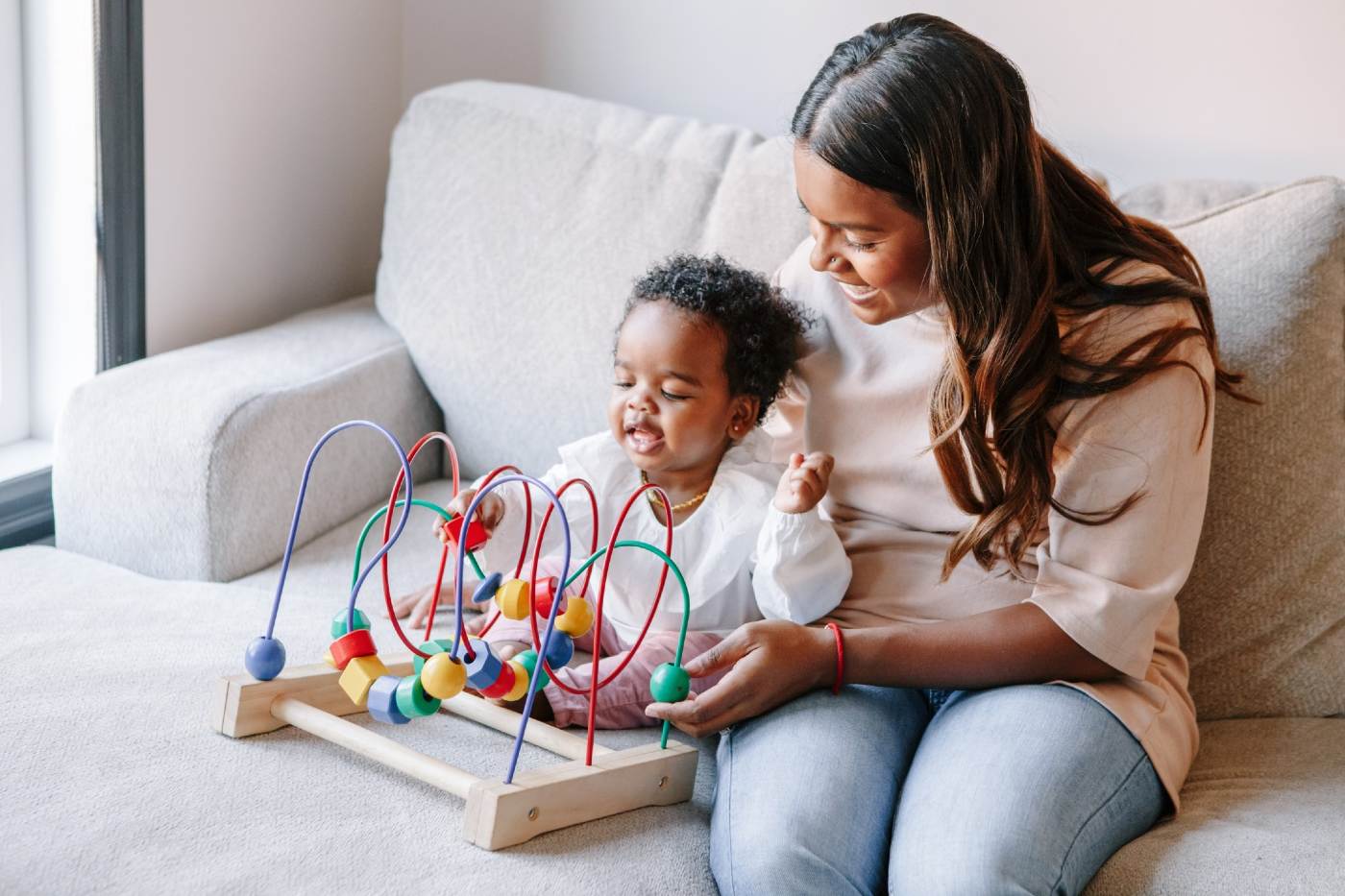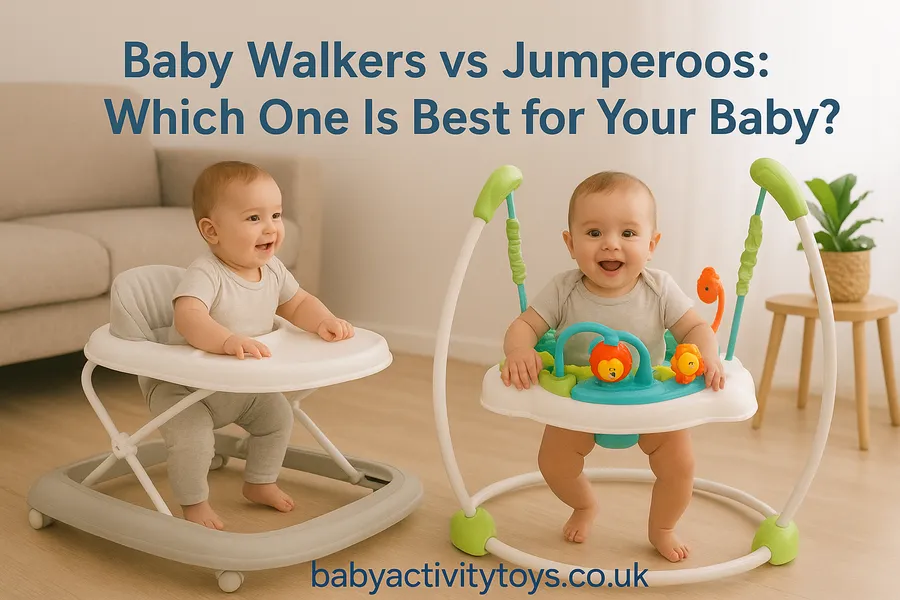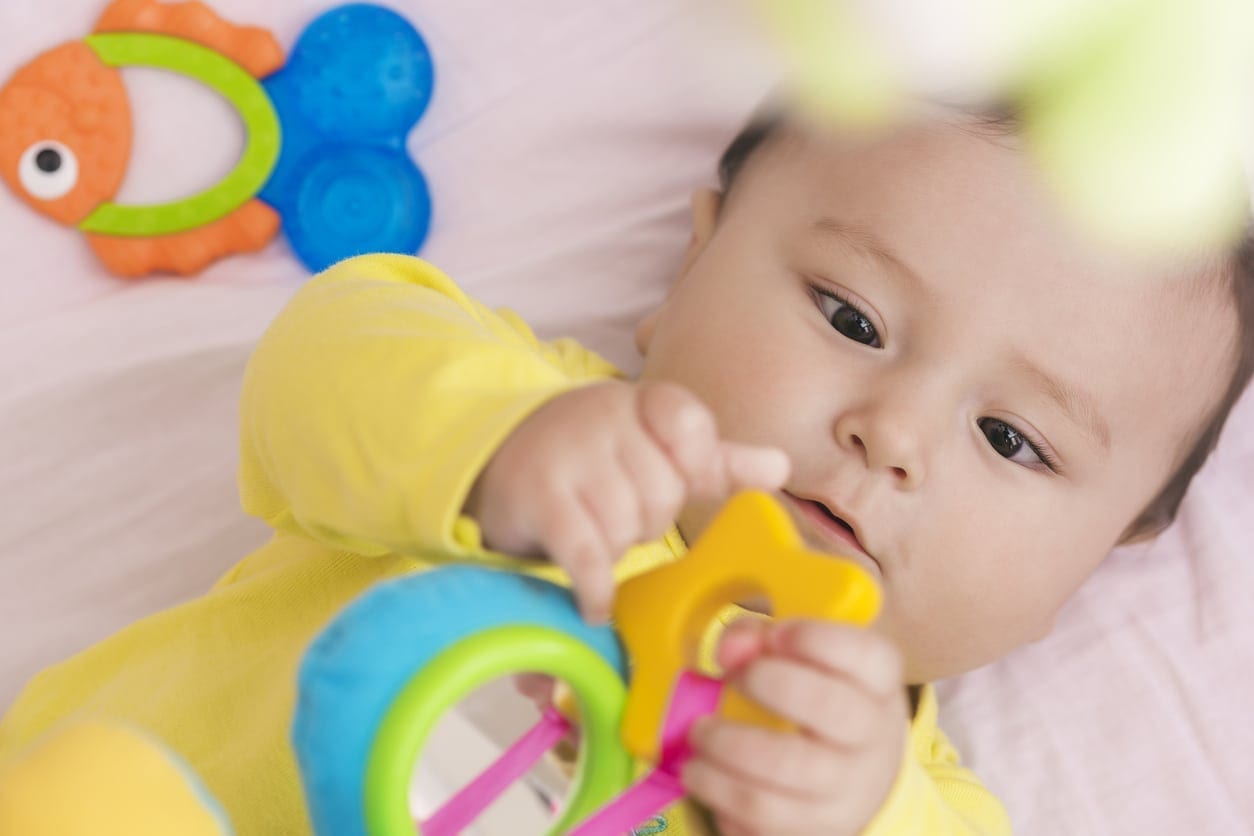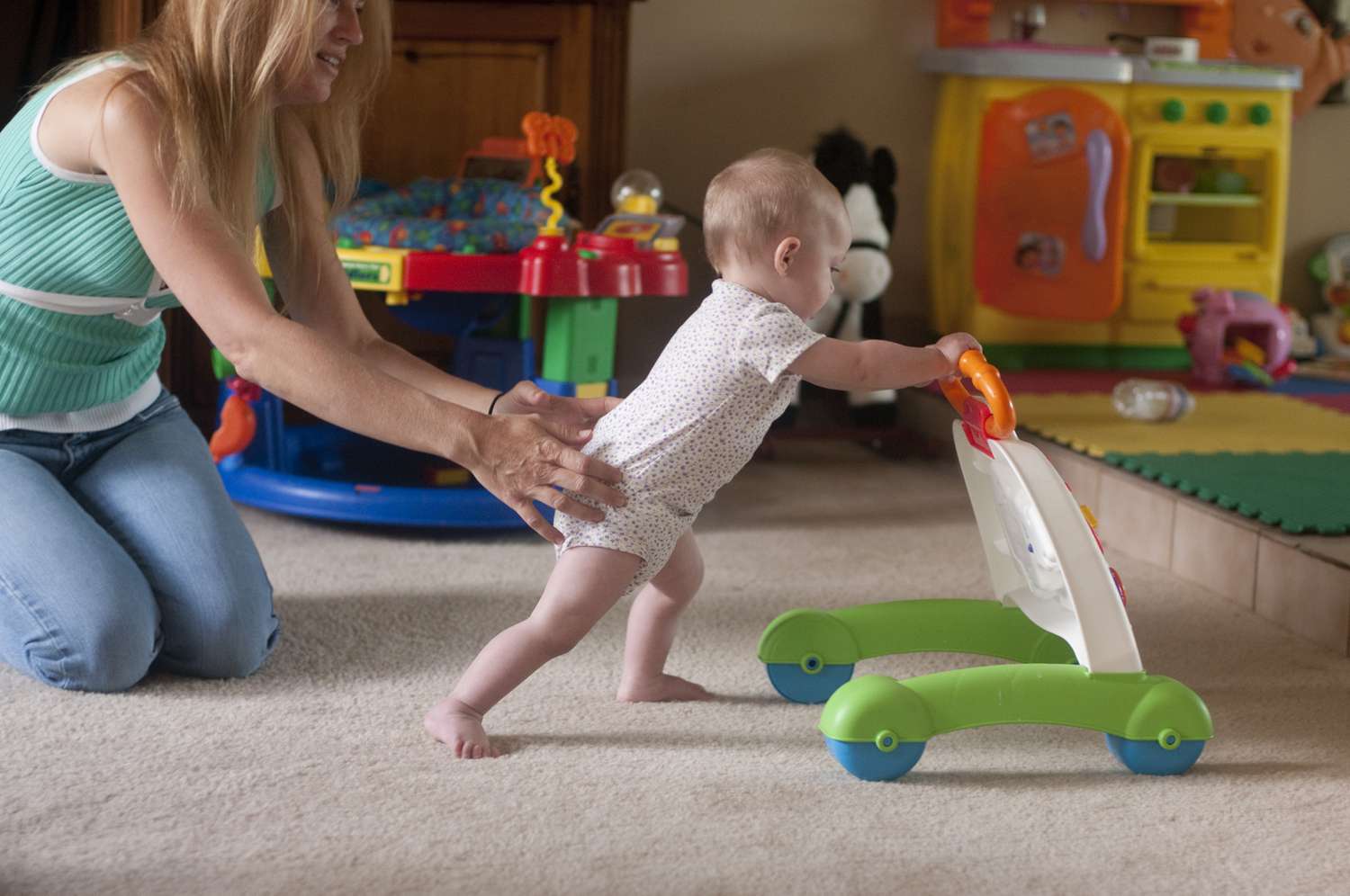
The 6-12 month period brings profound changes as your baby gains mobility, coordination, and problem solving skills. Creating safe play environments with sensory enriching toys facilitates hitting key milestones. This guide will explain engaging activities, the best developmental toys and their benefits to strengthen your baby’s emerging abilities.
Developing Gross Motor Skills (6 – 12 Mths)
Around 6 months, your baby starts mastering moves like rolling, crawling, pulling to stand and cruising furniture. What you want to do at this stage of development is lay your baby on a play mat with scattered toys just out of reach to provoke mobility. You need to ensure your baby has an open play area without dangerous obstructions for exploration.
Once your baby starts crawling, contain him/her using a baby gate yet allow room for roaming. You need to place toys on low open shelves or activity tables for standing support practicing steps. Your baby needs to be encouraged to push lightweight activity centres that encourage walking while interacting with buttons and toys.
Recommended Toys:
- Baby play mats with high contrast toys
- Low and sturdy activity tables
- Lightweight activity centers with wheels
- Play yards with soft spots and foam pieces
- Baby-proofed spaces for cruising practice
Benefits:
- Builds core and leg strength
- Develops balance and coordination
- Fosters spatial awareness and depth perception
- Provides exercise through movement
- Encourages curiosity and independence
Building Hand-Eye Coordination (6 – 12 Mths)
One of the development activities you will need to help babies between the ages of 6 and 12 months through activity play toys is to build hand-eye-coordination. Activities requiring grasping, moving toys and manipulating objects refine hand-eye coordination and dexterity. Give containers like cups or bowls filled with blocks or balls to pour out and refill. Start finger feeding allowing them to pick up bites to bring to mouth. Provide supervised access to stacking toys, tailor difficulty based on skill level. Even failed attempts build focus and persistence!
Recommended Toys:
- Containers for transferring toys in and out
- Stackable cups and rings
- Shape sorters with knobs for grasping
- Plush toys with tags for clutching
- Finger food for self-feeding practice
Benefits:
- Develops pincer grasp and fine motor control
- Strengthens hand and finger muscles
- Fosters eye-hand connection and dexterity
- Encourages grasping, shaking, transferring toys
- Provides sensory input through touch
Building Problem Solving Skills (6 – 12 Mths)
Between 6-12 months, your baby starts understanding cause and effect, solving simple problems through reasoning. There are various ways that you can help your baby build problem solving skills. You can encourage filling and dumping containers to note results. Provide shape sorters, gradually transitioning to more complex pieces scored for self-success. Assist them in snapping together snap beads or links.
Let them bang toys like spoons or plastic plates together and affirm their delight in discovering sound causation. Providing toys with mechanisms like levers, buttons and flaps for them to manipulate boosts logic and reasoning. Your smiles and encouragement give confidence to keep exploring!
Recommended Toys:
- Shape sorters and stackable cups
- Pop-up toys with movable parts
- Links, snap beads and interlocking blocks
- Board book flaps and tactile elements to manipulate
- Toy phones, drums, keyboards for sound play
Benefits:
- Develops reasoning skills and logic
- Fosters spatial and shape recognition
- Encourages discovery of cause and effect
- Promotes fine motor skills and coordination
- Provides foundation for early math concepts
Language and Social Growth (6 – 12 Mths)
Your child’s language and social growth at this age is very important and cannot be left to chance. Your interactions while playing have a profound impact on language and social development. Name body parts, toys and household objects as they investigate surroundings. Read board books together, pointing at and describing pictures. Provide scarves for early symbolic pretend play like peek-a-boo. Mirror their babbles and affirm their attempts.
Recommended Toys:
- Board books with real life photographs
- Soft scarves for peek-a-boo and pretend play
- Picture flashcards for naming common items
- Baby dolls and stuffed animals for cradling
- Toy phones and keyboards for role playing
Benefits:
- Encourages turn-taking and joint attention
- Exposes baby to conversational tones and new vocabulary
- Allows safe emotional release through pretend play
- Fosters empathy, bonding and attachment
- Develops early language and social skills
Sensory Development (6 – 12 Mths)
Your baby refines perceptual skills through sights, sounds, scents and textures. Incorporate a variety of materials with teether toys, rattles, soft blocks. Place safe household items like wooden spoons, lint brushes and plastic bowls in treasure baskets for new tactile experiences.
Provide toys with contrasting colors, patterns and light up buttons for visual input. Choose musical and noise making toys for auditory stimulation. Introduce new smells with scented toys. Rotate novel elements to captivate their senses and enrich neural connections.
Recommended Toys:
- Varying textured teether toys
- Light up musical toys
- Treasure baskets with household items to explore
- Scented toys and tactile balls
- Crinkle books and rattles
Benefits:
- Stimulates sensory perception development
- Helps distinguish stimuli for processing
- Provides neural foundation for future learning
- Fosters hand-eye coordination
- Encourages exploration and curiosity
Conclusion:
6-12 months represents an incredible period of growth and discovery as your baby actively explores their capabilities. Take delight in their newfound mobility. Set up engaging play spaces encouraging milestone development. Participate in play while giving space for independence. Ask gentle questions and affirm effort.
Always supervise actively given safety risks. Minimize dangers, yet allow measured risks for learning. Watch for signs of overstimulation and provide calming breaks. Let your child set the play pace. Foster their curiosity rather than expecting rigid outcomes. Playing together forms the building blocks of future learning across all domains.
Above all, embrace the precious joys of this fleeting stage. There is no greater privilege than witnessing your baby unfold their potential through the magic of play.






